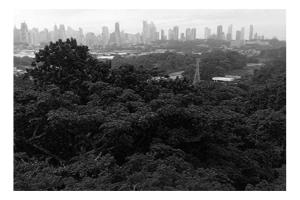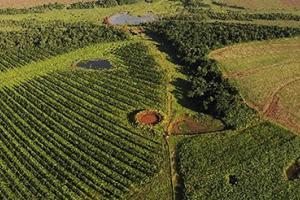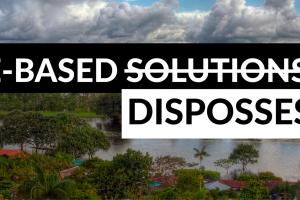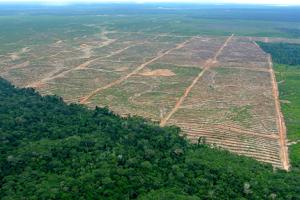Biodiversity Offsetting
The promise to offset biodiversity destruction opens the door for corporations to obtain funding and access land which would otherwise be off limits for large-scale destruction. Promises to recreate or protect habitat of "equivalent" ecological value elsewhere is even opening up protected areas and World Heritage Sites to corporate destruction. Biodiversity offsets therefore create double destruction and exploitation, since corporations control both the territories affected by industrial activities as well as those targeted for offset projects.
The false idea that industrial plantations are a solution to the climate crisis is a golden opportunity for investment funds like Arbaro, which access scarce climate funding for expanding destructive monocultures.
The UN Land-Grabbing Summit in Glasgow made it once again clear that these spaces will never advance the already existing solutions to the climate crisis.
Suzano, the world’s largest producer of eucalyptus pulp, is seeking to intensify its operations with so-called ‘green bonds’ as a way to finance its expansion projects.
It is imperative to understand the concept of ‘nature-based solutions,’ to name it for what it is: ‘nature-based dispossessions’, and to expose the real threat it poses to territories.
While the concept of ‘Nature Based Solutions’ has eagerly been seized upon by polluting industries, financial institutions and governments, its origins lie somewhere else.
The term ‘nature-based solutions,’ in the context of the exclusionary and predatory projects that gather behind it, reveals something fundamental.
Big polluters are making ‘net zero’ pledges to satisfy the financial players that fund them. So-called ‘nature-based solutions’ are at the core of these pledges –a new corporate brand for offsets.
These companies have destroyed large territories and the devastation that comes with their fossil fuel extraction continues. Now, they are putting forest protection and tree planting at the heart of their climate strategies
The mining sector seeks to gain legitimacy and expand its frontiers of accumulation and territorial control. It does so using a discourse of sustainability and by investing in so-called “nature-based solutions.
This text shares reflections that emerged from our discussions with women impacted by Green Economy projects in Brazil.











